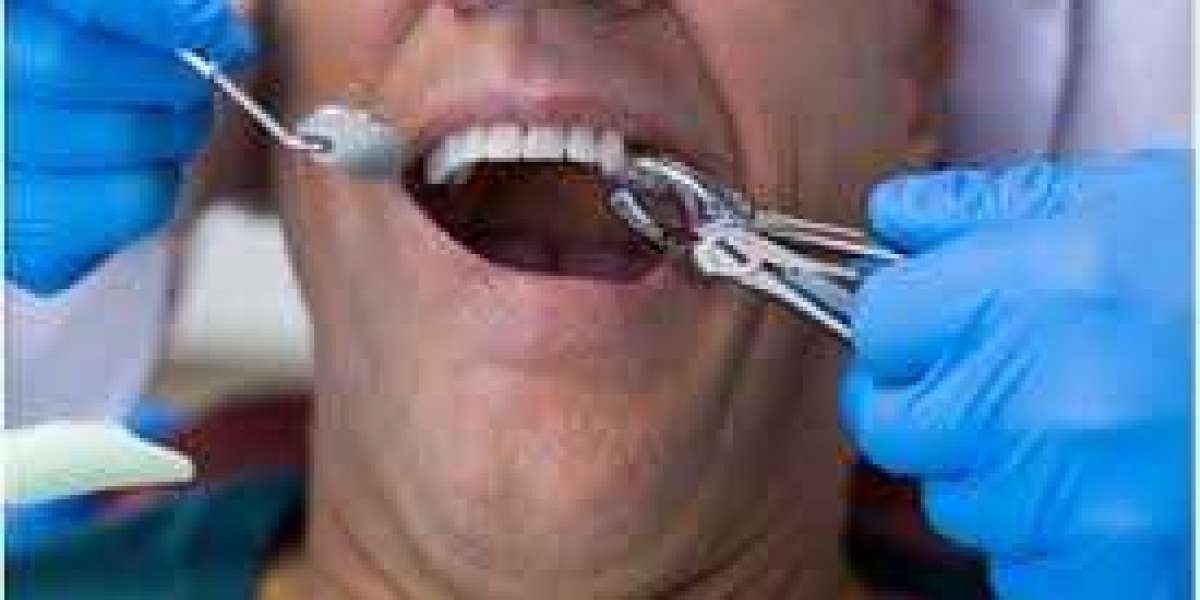Tooth extraction pain can be unexpectedly intense, especially after emergency surgery. The discomfort often interferes with daily life, eating habits, and even sleep. Many patients worry whether their pain is normal or if something went wrong during healing. Ignoring it can make recovery longer and more stressful. Thankfully, you can ease this discomfort with the right post-surgery care and attention. Simple yet effective methods, like managing swelling, keeping the site clean, and using safe pain relief, can significantly shorten your recovery time. Here’s everything you need to know to relieve extraction pain and heal comfortably after an emergency procedure.
Understanding Why Tooth Extraction Pain Happens
Tooth extraction pain is your body’s natural reaction to the trauma of removing a tooth. During the procedure, tissue and bone are disturbed, triggering inflammation and soreness. This pain typically peaks within the first 24–48 hours before gradually improving over several days.
However, the severity of discomfort can depend on factors like the complexity of your surgery, your overall health, and how well you follow aftercare instructions. Ignoring oral hygiene or skipping prescribed medication can increase the risk of complications such as dry socket or infection.
Common causes of extraction pain for a tooth include:
- Swelling and inflammation at the extraction site
- Blood clot dislodgement leading to dry socket
- Bacterial infection from poor oral hygiene
- Jaw stiffness or nerve sensitivity
- Excessive chewing or touching the wound area
Immediate Pain Relief Steps After an Emergency Tooth Extraction
After an emergency tooth extraction, managing pain early can make all the difference. Your dentist may prescribe medication or recommend over-the-counter pain relievers to control inflammation and soreness. Follow these instructions carefully to avoid unnecessary discomfort.
You can also combine medication with practical home remedies. Applying a cold compress to your cheek within the first 24 hours helps reduce swelling and numbs the area naturally. Remember, the goal is to protect the healing site while maintaining comfort.
Quick pain relief methods include:
- Apply an ice pack for 10–15 minutes at a time
- Take pain medication as prescribed
- Avoid smoking or using straws for 24 hours
- Keep your head elevated while resting
- Eat soft, cool foods like yogurt or smoothies
How to Prevent Complications That Worsen Tooth Extraction
Preventing complications is key to a smoother recovery. One common issue is dry socket, which occurs when the blood clot at the extraction site dissolves or dislodges too early. This can expose nerves, leading to severe tooth extraction pain and delayed healing.
You can reduce the risk by avoiding hard foods, alcohol, and tobacco. Gently rinse your mouth with salt water after the first 24 hours to keep the area clean without disturbing the clot.
To lower your risk of complications:
- Avoid vigorous rinsing or spitting for 24 hours
- Stay away from crunchy or spicy foods
- Do not smoke or vape during the healing phase
- Rinse gently with warm salt water twice daily
- Maintain hydration to support healing
What to Eat and Avoid During Recovery
Your diet plays a big role in managing the extraction pain for a tooth and the recovery speed. Choosing the right foods helps your body heal faster and minimizes irritation to the extraction site. Soft, cool, and nutrient-rich foods are ideal in the first few days.
Avoid foods that can get lodged in the wound or require heavy chewing. Sticky or spicy foods may delay healing and increase pain. Listening to your body and progressing gradually from liquids to solids ensures you recover comfortably.
Best foods to eat:
- Mashed potatoes and soups (lukewarm)
- Yogurt, smoothies, and applesauce
- Scrambled eggs and soft pasta
- Cottage cheese or oatmeal
Foods to avoid:
- Nuts, chips, and popcorn
- Hot or spicy dishes
- Acidic fruits and juices
- Sticky candies or gum
How Long Does Extraction Pain Last and When to Worry
Typically, tooth extraction pain should begin to fade after 2–3 days. Mild soreness can linger for up to a week, especially following an emergency tooth extraction. However, if pain increases instead of improving, or if you experience bad taste, swelling, or fever, you should contact your dentist immediately.
Persistent or worsening discomfort may signal an infection or dry socket. Addressing these issues early prevents serious complications and ensures your healing stays on track. Never try to self-diagnose; professional evaluation is essential if something feels off.
Contact your dentist if you notice:
- Severe pain beyond three days
- Persistent bleeding or swelling
- Pus or foul odor near the extraction site
- Numbness or tingling around the mouth
- Fever or general malaise
Proven Home Remedies to Relieve Extraction Pain
While medication helps, natural remedies can further soothe discomfort. Saltwater rinses, for example, are a gentle and effective way to keep the area clean while reducing inflammation. Cold compresses can also be alternated with warm compresses after the first 48 hours to relax the jaw muscles.
Clove oil and chamomile tea have mild pain-relieving properties that can provide temporary relief. Just remember to avoid applying anything directly into the socket unless approved by your dentist.
Home remedies that may help:
- Warm saltwater rinse twice daily
- Cold compress during the first day, warm after two days
- Applying clove oil (diluted) to nearby gum tissue
- Drinking herbal teas with anti-inflammatory effects
- Resting adequately to aid natural healing
How to Keep the Healing Site Clean and Safe
Good oral hygiene is crucial for avoiding prolonged tooth extraction pain. Keeping the mouth clean prevents infection while promoting healthy tissue regeneration. However, brushing too soon or too aggressively can harm the healing site.
After 24 hours, gently brush your other teeth while avoiding the extraction area. Continue using warm saltwater rinses and avoid commercial mouthwashes containing alcohol. Patience and consistent care are the keys to quick recovery.
Oral care tips for recovery:
- Brush teeth carefully using a soft-bristled toothbrush
- Avoid rinsing vigorously or touching the wound
- Skip alcohol-based mouthwash for the first week
- Keep follow-up appointments with your dentist
- Use clean gauze if minor bleeding occurs
When to See a Dentist Again During Recovery
Sometimes, even when you follow all instructions, extraction pain may persist. A follow-up visit ensures the area is healing correctly and allows your dentist to check for hidden issues like infection or bone exposure.
Never hesitate to schedule a visit if your pain feels unmanageable. Professional cleaning, antibiotics, or medicated dressings might be required to relieve discomfort and promote recovery.
Visit your dentist if you experience:
- Pain worsening after 3–4 days
- Difficulty opening your mouth
- Excessive bleeding or foul taste
- Swelling that doesn’t subside after 48 hours
Conclusion
Tooth extraction pain is a normal part of recovery, but with proper care, it doesn’t have to disrupt your life. Managing discomfort early, maintaining hygiene, and following your dentist’s advice can help you heal quickly and comfortably after emergency surgery.
For lasting relief and expert care, count on The Denture Company to help manage tooth extraction pain with gentle, professional dental solutions designed for your comfort and confidence.
FAQs
- How long does tooth extraction pain last after surgery?
Mild pain usually lasts 2–3 days and decreases gradually. However, if discomfort worsens after this period, it’s important to contact your dentist.
- Can I use ice for tooth extraction pain relief?
Yes, ice packs help reduce swelling and numb pain. Apply for 10–15 minutes at a time, but avoid direct contact with the skin.
- What should I avoid after an emergency tooth extraction?
Avoid smoking, hard foods, alcohol, and using straws for at least 24–48 hours to protect the blood clot and promote healing.














